In investing it is important to directly address the challenging and ever-changing economic environment head on. It was only last quarter when there was a real fear of inflation and surging interest rates. Now escalating trade wars are threatening a global recession. In this quarter’s letter we will discuss how we see these challenges playing out and what we are doing about it within Avenue’s fixed income and equity portfolios.
Where we spent most of last quarter’s letter discussing interest rates, we can give a briefer update this quarter. The all-important US 10-year bond yield reached a high of 3% in the quarter and has now fallen to 2.8%. The US economy is strong and unemployment is low. However, the structure of employment has not resulted in overall wage pressure. Trade tensions which started with NAFTA, affecting Canada and Mexico, have extended to Europe. And now more importantly, China has been added to the mix.
Trade wars are easy to start but hard to finish, or rather resolve. The likelihood of a mild tariff-induced recession is now a realistic possibility. Avenue’s conclusion is that interest rates will not be going up significantly from this level given a global economic slowdown and will stay range bound at these levels, meaning that rates will move within a relatively tight range for a certain time period. To be clear, to give markets room to breathe, interest rates could easily be range bound between a full percent higher or a percent lower from this current level. However, we believe there is unlikely to be a step change where 10-year bond yields rise to 5% or fall to 0%, as has been experienced in Europe.
Avenue’s bond portfolio continues to focus on Canadian corporate bonds where initial investments are made for 5 to 7-year time frames. However, the average term to maturity of the portfolio is 4 years and we expect the portfolio to average a 3% to 4% rate of return over time. We also feel that it is important not to ‘reach for yield’ at this point in the economic cycle. We see other investors taking on more risk to get a limited improvement in return. It is very difficult to predict the timing of a credit event where corporate interest rates rise dramatically due to potential default risk. Therefore, one of Avenue’s core rules is to be cautious when it looks like the market is getting greedy.
So, with the level of interest rates at a reasonable level and the North American economy doing fairly well, we now get President Trump-induced trade battles on multiple fronts. The US, Canada, and Mexico have imposed tariffs on a number of items with the idea that this pressure will force all parties to resolve their respective NAFTA trade issues faster. Europe is also being targeted with steel tariffs, but the specific trade issues are less clear. Now more importantly, China is being asked not to be a trade cheat and an intellectual property thief. All these issues are very complex and not easily resolved.
But the tariffs are very real and they can gum up the economy very quickly. These multiple tariffs will slow global growth. We just don’t know if it is a slowing or a stall at this point. The one thing we know for sure is that the stock market does not like uncertainty.
From an investment perspective we have lots of maneuverability. The North American economy is described as a consumer industrial economy. Industrial implies that we make things and consumer implies that we buy things. But really what the consumer economy has evolved into is services as well as products. The trade of goods can stagnate and we don’t want to own investments in companies that make tradable products.
Ironically, but for different reasons, Avenue had already come to the conclusion not to invest in Canadian companies that make things for export. Over the last decade in Canada we have witnessed an all-out government driven assault on making Canadian export products uncompetitive. Please see this quarter’s Case Study which details specifics of what Canada exports globally. While NAFTA makes an extreme case to avoid certain manufacturing sectors of the economy, we would say these businesses were already largely un-investable a long time ago, given government policies of inhibitive tax levels and regulations. Canadian policies were already hurting our businesses long before NAFTA tariffs.
We have seen the stock market sentiment rotate away from manufacturing and global multinationals to local businesses that focus on services and rents. These are the types of business where Avenue already has the majority of our holdings. But it is never quite that simple. We are positioned for how the market is shifting but many multinationals have now sold off. This gave us the opportunity to buy back Johnson and Johnson at a good valuation that we have not seen in years.
We will finish this letter with the comment that the current economic climate is harder to predict and therefore we will run Avenue’s equity portfolio with a slightly higher cash cushion. This extra cash gives us the flexibility to take advantage of opportunities when they arise. We also might expect to have a bit more turnover than usual. Turnover is an industry term for selling what is not working. In the current environment we will be less forgiving of companies that are not meeting our expectations.
